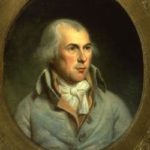This lesson explores the Supreme Court case Tandon v. Newsom (2021) regarding religious liberty.Throughout the COVID-19 pandemic, the state government of California along with many of its county governments placed restrictions on gatherings of people. One of their regulations had the effect of preventing more than three households gathering together at a time for any in-home prayer and Bible studies. Plaintiffs sued the state, arguing that these restrictions violated the First Amendment since many secular businesses were allowed to have more than three households of people within it at any time, and that therefore religion was being specifically discriminated against. The Supreme Court recently released a per curiam (unsigned) decision concerning the constitutionality of these regulations.
Freedom of Religion: Establishment Clause
The First Amendment has two clauses related to religion: one preventing the government establishment of religion (the establishment clause) and the other protecting the ability to freely exercise religious beliefs (the free exercise clause). Students examine the First Amendment’s Establishment Clause: why it was included in the Bill of Rights, the issues it addresses, and how the Supreme Court has interpreted it over time.
Good News Club v. Milford Central School (2001)
Is a public school that refuses to let a religious club use its facilities violating the Free Speech Clause of the Constitution? This case summary shows how the Supreme Court answered that question in 2001.
Gonzales v. O Centro Espirita (2006)
Can the federal government seize a sacramental tea containing a Schedule I substance from a branch of a Brazilian church? This case summary shows how the Supreme Court answered that question in 2006.
Wisconsin v. Yoder (1972)
Under what conditions does the state’s interest in promoting compulsory education override parents’ First Amendment right to free exercise of religion? This resource is a case summary of Wisconsin v. Yoder, which tested the right of parents to withdraw their child from school for religious reasons.
James Madison and the First Amendment

This short video traces the evolution of Madison’s attitude towards the religious liberty guarantees of the First Amendment. Initially opposed to a Bill of Rights as both inappropriate and dangerous, Madison’s views changed as a result of political and philosophical considerations. Professor Jeffry Morrison emphasizes Madison’s belief that religion should play a vital but informal role in the life of the republic.
Locke v. Davey (2004)
Does the Free Exercise Clause require states to fund religious instruction if providing merit-based college scholarships for secular instruction? This case summary shows how the Supreme Court answered that question in 2004.